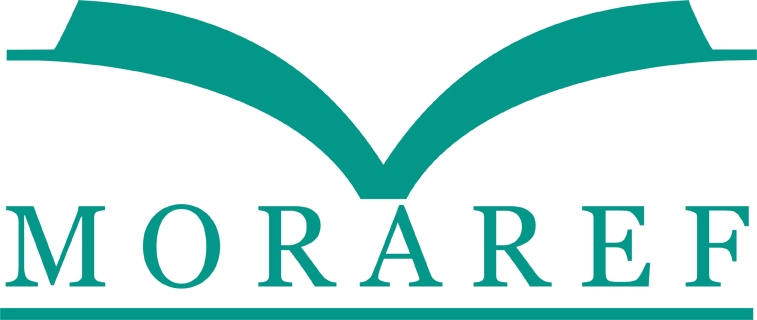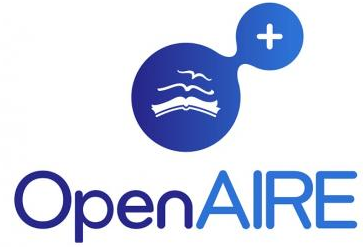Quantitative Analysis of Secondary Metabolites and Solvent Optimization of Secang Wood Extract (Caesalpinia Sappan L/BiancaeaSappan) as Disclosing Agent
Abstract
Disclosing solution is a material that is often used to see the presence of plaque, made of erythrosine base material. Erythrosine is one of the food coloring ingredients and can also be used for bacterial staining, can cause allergic reactions and this dye also has the potential as a carcinogen. The purpose of the study is to figure 1). qualitative of the secondary metabolites of brazilin compounds in secang wood extract, 2). quantitative of the secondary metabolites of brazilin compounds in secang wood extracts and 3). toxicity in secang wood extract using the BSLT shrimp larva toxicity test (Brine Shrimp Lethality Test). The study design is a non-experimental one that will examine quantitatively on secondary metabolites of secang wood extract and toxicity tests. The research tools used are ovens, grinders, mechanical sieves, maceration vessels, hydraulic presses, rotary evaporators, water baths, Uv-Vis spectrophotometers, glass tools and materials used are secang wood and other materials used namely ethanol pro analysis, methanol pro analysis, hexane pro analysis, ethyl acetate pro analysis, aqua sterile, what man paper, FeCl3, HCl, shrimp larvae, and larval growing media. Quantitative analysis test obtained the level of secang wood brazilin which is 8.54% b / b. In toxicity tests using Uv-Vis spectrophotometers, the results of wood extracts are not toxic to living things based on toxicity tests with shrimp larva test models. Conclusion, secang wood contains brazilin which plays a role in giving red color and is not toxic to living creatures so that it is safe to use in humans.
Keywords
Full Text:
PDFReferences
Wicaksono, dkk, “Aktivitas Antikanker dari Kayu Secang, article Journal
Cermin Dunia Kedokteran 2008, vol. 35 no. 03/162
Nugraha,I.P.W, I.W.Suwartawan, P.A.A.Prayoga, dkk.,”Potensi Brazilein dari Kayu Secang (Caesalpinia Sappan L) Sebagai Agen Depigmentasi Kulit Secara In Silico, Jurnal Farmasi Udayana, 2018
Rina O,Ansori, “Eksplorasi Bahan Pewarna Alami sebagai Bahan Tambahan Pangan yang Aman dan Memiliki Bioaktivitas bagi Kesehatan, Prosiding Seminar Nasional Pengembangan Teknologi Pertanian Politeknik Negeri Lampung, 2017. ISBN 978-602-70530-6-9
Widyasti, R,A, Lestari A, Amri K,dkk.,” Pengembangan Standarisasi Pewarna Alami Batik dari Kulit Kayu Secang (Caesalpinia Sappan L.) dengan Teknik Spektroskopi, Jurnal Penelitian Saintek, Vol. 22, Nomor 1, Yogyakarta, 2017.
Amin S, Yuliana A.,”Analisis dan Uji Kestabilan Zat Warna Kayu Secang (Caesalpinia Sappan L.) Menggunakan Spektrofotometeruv-Visible dan Inframerah, Jurnal Kesehatan Bakti Tunas Husada: Jurnal Ilmu-Ilmu Keparawatan, Analis Kesehatan dan Farmasi, 2016, Vol.15. No.1.
Nurlisa,H,L, Riyadi H,P, Romadhan,”Penggunaan Kayu Secang (Caesalpinia Sappan L) Sebagai Alternatif Pengganti Rapid dalam Pewarnaan Kulit Samak Ikan Nila, hasilnya penyamakkan pada kulit ikan nila Jurnal Saintek Perikanan, 2015, Vol.11 No.1
Arezoo,T, Rooha,K,K, Salehi,R,dkk,”Biofilm formation potential of oral streptococci in related to some carbohydrate subtates. African Journal of Microbiology Research,2010, 4 (11): 1051-1058
Mangiri,B,S, Yani,S, Anitasari,S,”Sari Buah Naga Super Merah (hylocereus costaricensis) sebagai Pewarna Alami Plak Gigi, jurnal material Kedokteran Gigi, 2018, ISSN 2302 5271
Rachmawaty, D. U,”ji Aktivitas Antibakteri Ekstrak Etanol, Etil Asetat dan Petroleum Eter Rambut Jagung Manis (Zea mays ssaccharata Strut) terhadap Bakteri Staphylococcus aureus dan Escherichia Coli. Skripsi Program Studi Kimia, Fakultas Sains dan Teknologi, Universitas Islam Negeri Maulana Malik Ibrahim, Malang, 2016.
Wahyuningtyas, E,“Pengaruh Ekstrak Graptophyllum Pictumterhadap Pertumbuhan Candida Albicans Pada Plat Gigi Tiruan Resin Akrilik,” Indonesia Journal of Dentistry, 2008.
Fadillah. H & A. Alfiarty”The Influence Of Pyrolysis Temperature And Time To The Yield And Quality of Rubber Fruit (Hevea brasiliensis) Shell Liquid Smoke. Prosiding Seminar Nasional Teknik Kimia “Kejuangan”, 2015,1 : 1-7.
Neldawati.,Ratnawulan.,& Gusnedi,“Analisis Nilai Absorbansi dalam Penentuan Kadar Flavonoid untuk Berbagai Jenis Daun Tanaman Obat.Pillar of Physics, 2013,2 :76-83.
Wahyuddin, M., S. R Pakadang & A. Aprilyani,“ Uji Aktivitas Antibakteri Ekstrak Etaol daun Dewandaru (Eugenia uniflora L)terhadap Streptococcus pneumonia dan Shigella dysenteriae. Jurnal Farmasi, 2017,5 : 199-204.
Meyer, B.N., Ferrigni, N.R., Putnam, J.E., Jacobsen, L.B., Nichols, D.E., dan McLaughin, J.L,“Brine Shrimp: A Convenient General Bioassay for Active Plant Constituent, Planta Medica, 1982, 45:31-34
Carballo, J.L. et al. A Comparison Between Two Brine Shrimp Assays to Detect In Vitro Cytotoxicity in Marine Natural Products. BMC Biotechnology, 2002.
DOI: https://doi.org/10.31983/jkg.v9i1.7844
Article Metrics
Refbacks
- There are currently no refbacks.
| View My Stats |











.png)


.png)
.png)








